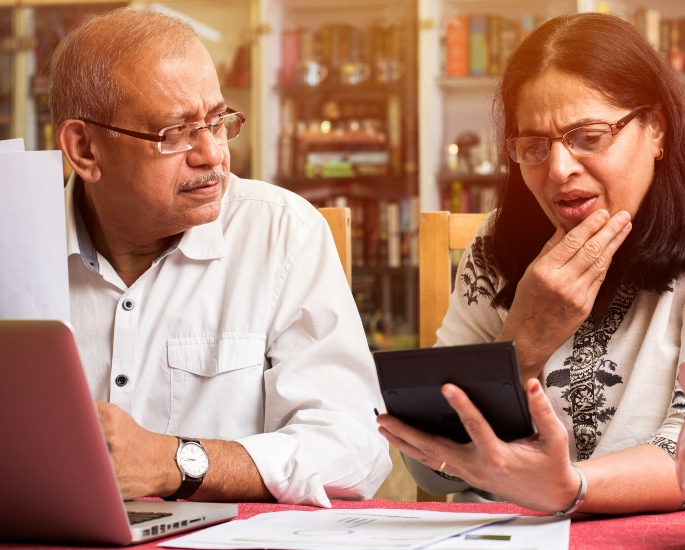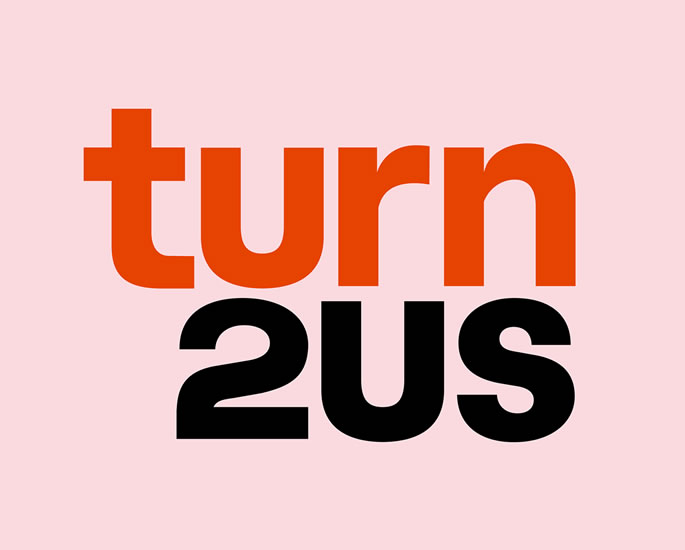"It feels like an onslaught of misery I can't escape"
The cost of living crisis and overall rising prices have brought on a government protocol coined the ‘energy price cap’.
On October 1, 2022, the annual energy bill for a typical household suffered a 27% increase, rising from £1,971 to £2,500.
Households are being urged to provide meter readings to their energy supplier so their bills remain accurate.
However, even with specific readings, families will pay well over their usual amount.
Not only is this bringing massive financial strains but households are conflicted about whether to even use their electricity and gas.
This is causing mass worry around the UK with one of the main concerns being heating as the winter months approach.
The energy price cap guarantees that the maximum an average house will have to pay is £2,500.
Whilst this is a significant reduction from the £3,549 figure government had stated in 2021, it’s still a staggering sum.
Likewise, the annual energy bill could be lower or higher depending on the amount of energy a house uses.
So, we spoke to British Asians to see how this cap will affect them and if they think will actually help.
Why Are Prices Going Up?

One of the main reasons prices have soared is because of the conflict in Ukraine.
The reduced supply of Russian gas has meant that the demand for energy is not met with the correct supply, therefore prices have to rise from suppliers.
Likewise, the requirement for energy has soared after Covid restrictions ended. More companies, businesses, and offices that were shut need the energy.
According to the Office of Gas and Electricity Markets (OFGEM), this is a once in a 30-year event. And the skyrocketing prices are affecting everyone globally.
Suppliers buy energy on the wholesale market, but wholesalers have increased their prices and some suppliers cannot deal with the fee.
Since January 2021, 29 suppliers have exited the market in Great Britain. These 29 were serving 4.3 million households.
Therefore, the energy market takes on these new customers and the high cost of that energy gets passed on to the energy consumer (the public).
But even with the introduction of the energy price cap, it’s actually not true that this cap will stand for every household.
The chief executive of National Energy Action, Adam Scorer, urges families to get their heads around that:
“It’s simply not true that bills are capped at £2,500 and it’s vital that people understand that.”
“The energy price guarantee is not an ‘all-you-can-heat’ buffet. If you use more, you will pay more.
“Millions on tight budgets do not fit the ‘average’ tag.
“They can use more energy than the average because they’ve got medical conditions, larger families or really difficult-to-heat homes. They may face bills much higher than £2,500.”
This has added further anxiety to the situation and emphasises the amount of uncertainty around the cost of living.
What do British Asians Think?

With outrage over the energy price cap and the cost of living as a whole, DESIblitz spoke to some British Asians to gather their opinions.
The South Asian community in the UK plays a big part in adding to the economy through different industries such as taxi drivers, convenience stores and law firms.
Therefore, some are having trouble dealing with the stress of keeping their business alive as well as staying on top of their bills. For example, Asad Sher a shopkeeper from Birmingham said:
“During Covid, we were the only shop open in the area. So many people thanked us.
“Especially the older ones who cannot travel far, we’re right on their doorstep. Now, we’re facing so many high prices that I’m not sure if I can keep the shop open.
“People are trying to save money but we’ve had to put prices up on things and that hasn’t gone so well.
“It’s like we’re paying for the government’s mistake. They did f**k all during Covid, it was the public who were helping each other.
“Now we’re paying for energy markets and Brexit. Whilst they’re getting pay increases, I’m unsure as to whether to use my heating at home.”
Sharon Rai, an off-licence owner in central London added her opinion:
“This price cap means nothing. It’s just a way of them feeding us lies to make it seem like they’re actually doing something.
“When I speak to my family, especially the elders, they don’t know what to do. Some of them have gotten bills already which are 5x higher than what they normally pay.
“Imagine how mentally draining that is. Then they have to call and the advisers barely help anyway. They say the same advice to everyone.
“I told my 80-year-old auntie to move in with us so she doesn’t have to suffer.”
“That’s an extra person I have to pay for but it saves her from being cold, alone and suffering.
“Some people aren’t so lucky to have that which is even scarier.”
Furthermore, we spoke to Nhera Gill, a student in Leicester to get her view on the energy price cap:
“I know times are tough and my parents are struggling to come to terms with their bills.
“The thing is as a student, you can’t even support your family in the way you wish you could.
“If I had a job then I could help out but no one will even hire us now because they don’t have the money to pay someone.
“We all hate the government. I think most students do. This energy price cap is just another way of them trying to cover up their tracks.
“No politicians or governments truly protect us. They could make real change but choose not to.”
With these views, it’s understandable that British Asians think the energy price cap is not going to help at all.
Regardless if the cap limits certain bills, prices are going to soar regardless. But this all stems from a series of poor decisions and a lack of political structure.
One of the main crowds that people are fearing for the most is the elder generation. Especially those that live alone or suffer from any mental health issue or physical disability.

DESIblitz spoke to Muhammed Sohaib, a 75-year-old retired doctor from Coventry. He explained how the energy price cap means nothing:
“Government always bring out these little things to distract the public.
“During Covid, see all those measures they put into place during and after lockdown like furlough and ‘eat out to help out’, and they were off having parties and affairs.
“It’s the same now. This energy price cap is here because they can’t make proper decisions. Now I’m so worried about how I’m going to survive.
“It feels like an onslaught of pain I can’t escape.
“I have grandchildren I want to buy presents for or family I want to go and visit. But I’m more worried about whether I’ll be able to survive in my house.
“Imagine waking up every day in a house where you’re scared to shower or cook or eat because of the energy it will use.”
Gagandeep Kaur, a 65-year-old from London shared her concerns:
“I came from India when I was about 11 years old with my parents. We’ve had to deal with a lot in our lives but nothing like this.
“I live with my daughter and her husband and we’ve had to cut back on some things and my son-in-law has changed energy providers to try and save us money.
“My brother is a few years older than me and lives by himself.
“He called me the other day so upset because he got his latest bill which was £1700.”
“He was breaking down and now we’re seriously looking at him moving in with us so we can try and spread out the cost of things.”
82-year-old Heera Beghal explained his worry and the extreme measures he is taking to overcome the cost of living:
“I’ve started using our barbecue and the coals to cook a lot of food for three to four days. It’s only me and my wife so it lasts us and the food is delicious.
“You know with Asian dishes, it takes a lot of gas and electricity when we’re making stuff from fresh.
“Doing this and then using the microwave to heat the food is cheaper for us than cooking. She works from home and I’m retired so we’re already using enough electricity as it is.
“I’m hoping this saves us some money because we need as much help as possible. It sounds extreme but when you’re pushed to the brink, you make these decisions.”
Lastly, we spoke to Navrathi Dabba, a 32-year-old HR advisor from Manchester. She told us of her views on the energy price cap and lifestyle she’s making to save money:
“The price cap will not help me at all. We have a family of five so I know for a fact that our bills will exceed £2,500.
“I knew the cap would benefit houses like us but it doesn’t work like that. The cap will only work for smaller families, but it doesn’t make it any better.
“There is no energy price cap really. It’s just a name given for the government to cover their backs.
“I work from home and have been since Covid restrictions ended. But I’ve completely changed my life around now and go into the office every day.
“It’s so I can use their electricity all day, their coffee machines, microwaves etc for the whole day and most of the week.
“It’ll save me some money at home. But then we have to deal with the commute on top because petrol prices are next level.
“So, I’ve decided to get the bus and pay for a monthly ticket which isn’t too bad.”
It’s evident that British Asians don’t feel the energy price cap will make a difference in their lives.
It’s also obvious that most people feel that this initiative is just a ploy to move the public’s attention away from the government and make it seem like they’re doing something.
Helpful Organisations

So, whilst British Asians aren’t positive that the energy price cap will help in any way, there are some steps families can take to help with the cost of living.
DESIblitz went into 10 organisations that can help households deal with their bills.
Some of these include Turn2us, a national charity for people who are struggling financially.
They help with the cost of energy or water bills and can help source grants and/or funds available for the public.
There is also the Fuel Bank Foundation which offers fuel vouchers and foodbank vouchers. Families can get £49 worth of fuel vouchers during the winter months.
Some other organisations include Scope, Shelter England and Macmillan. See here to find out more about the help these companies offer and what you may be eligible for.
Even though there are companies that can aid families with their energy finances, it’s still an extremely difficult time for the public.
British Asians up and down the country are equally struggling to find a way to afford their energy bills.
The energy price cap is certainly not a popular movement in this community and many feel that things will get worse before they can get better.
It’s also daunting to think about the vulnerable individuals who won’t be able to afford their costs and could find themselves without heating.
Hopefully, the energy price cap does help families in some sort of way but there are resources out there to assist.






























































